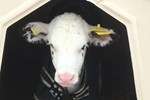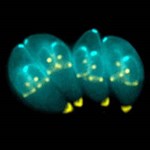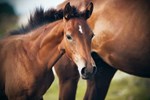Search - All Results
1251 - 1260 of 2047 results
-
World first, RVC finds cognitive impairments in dogs with epilepsy
A series of pioneering research studies from the Royal Veterinary College (RVC) into dogs with epilepsy have revealed that: Dogs with epilepsy find it harder to obey commands, are slower to learn new tricks, have spatial memory deficits and are easily distracted. Aversive training methods, such as bark-activated collars, prong collars and verbal punishment are associated with poor trainability and their use should be avoided. Some anti-epileptic drugs (the medications commonly used to treat seizures) were found to worsen the cognitive impairment of dogs with epilepsy. Dogs with greater exposure to training activities, including obedience classes, agility, and gun-dog training, were found to be associated with higher trainability and have fewer signs of cognitive dysfunction.You can’t teach epileptic dogs new tricks? A series of pioneering research studies from the Royal …
-
Pirbright young scientist of the year award
Congratulations to Claire Guinat (PhD student registered at the RVC) who is the joint winner of the Pirbright young scientist of the year award, along with a student from Compton. Claire was nominated for the award by Professor Linda Dixon from the …Congratulations to Claire Guinat (PhD student registered at the RVC) who is the joint winner of the …
-
Article
Artificial Urethral Sphincter Case
A dog with a suspected urethral sphincter mechanism insufficiency (USMI) had an artificial urethral sphincter (AUS) placed at RVC Small Animal Referrals. -
Article
New State-of-the-Art Technology for the RVC Microbiology Laboratory: Time to focus on bacteria again
Rapidly spreading viruses, such as those responsible for the current COVID-19 pandemic or the 2001 foot-and-mouth outbreak in the UK, have dominated the headlines on infectious threats in recent decades. However, bacteria, and multidrug-resistant strains in particular, remain amongst the most important challenges to human and animal health. -
New RVC research reveals extent and progression of bovine respiratory disease in UK dairy calves
New research from the Royal Veterinary College (RVC), combining thoracic ultrasound alongside the measurement of clinical signs, has revealed that nearly a third of calves in the UK experience bovine respiratory disease and subclinical pneumonia. …New research from the Royal Veterinary College (RVC), combining thoracic ultrasound alongside the …
-
Outstanding Achievements
Various members and affiliated members of the Animal Welfare team at the RVC have recently received a variety of fantastic awards in our field. Congratulations to them all! Dr Rowena Packer wins UFAW's Young Animal Welfare Scientist of the Year …Various members and affiliated members of the Animal Welfare team at the RVC have recently received …
-
From the geometry of a toppling table to a new ‘grazing’ gait? And perhaps why monkeys walk weirdly
In a new paper published in the Royal Society journal Biology Letters, two Royal Veterinary College (RVC) experts exploited the geometry of a wobbly table to explain the ‘grazing’ gait in quadrupeds as well as walking in primates. Very simple … -
RVC professor joins Mongolian crisis mission
A Royal Veterinary College expert has travelled to Mongolia to join a crisis management mission in response to critically endangered saiga antelope dying off in the country.A Royal Veterinary College (RVC) expert is in Mongolia to join a crisis management mission in …
-
New RVC research highlights the considerable behavioural and psychiatric effects of a mind-altering parasite
A Royal Veterinary College (RVC) study, published in Trends in Parasitology, suggests that the human infection burden of Toxoplasma gondii (T. gondii), a globally distributed parasitic infection, have been greatly underestimated.A Royal Veterinary College (RVC) study, published in Trends in Parasitology, suggests that the …
-
Research identifies first case of Fragile Foal Syndrome in Thoroughbred horses
Collaborative research study has found the first case of Fragile Foal Syndrome in a Thoroughbred horse







